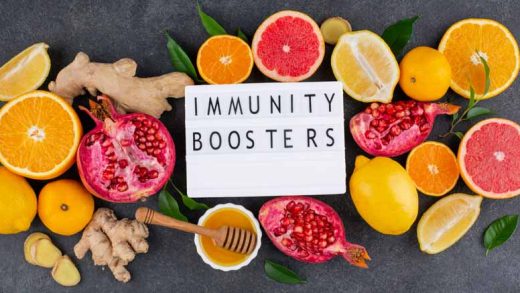No doubt, monsoon brings relief from the summer heat. However, it also poses health challenges. One serious concern is the risk of infections due to bacterial growth in foods. To be specific, bacterial growth on vegetables, especially.
Do you know the humid weather in monsoon is ideal for bacterial and fungal growth? This makes some vegetables riskier to consume. It can even lead to digestive issues and illnesses.
To take care of your family’s health, you need to learn which vegetables to avoid in the monsoon season. Kids are more prone to getting sick during this season. So, you must choose vegetables in the monsoon season very carefully.
This guide will help you choose vegetables during the rainy season. It also offers safer alternatives and tips for maintaining hygiene.
Vegetables You Should Avoid during Monsoon
Contamination in vegetables during the monsoon season. You may lower the potential health risks by avoiding a few particular vegetables that are more prone to contamination.
- Leafy Vegetables
- Root Vegetables
- Eggplant (Brinjal)
- Mushrooms
- Peas
Leafy vegetables like spinach, cabbage, and cauliflower can cause bacterial and fungal infections. It is because of the humid weather. Moreover, their complex structure makes it difficult to clean thoroughly. Leafy vegetables in the rainy season increase the risk of stomach infections. Anyway, kids do not like leafy veggies. So, they would be happy not to see it on their plates for a month or two.
You should also avoid root vegetables like radishes, carrots, and potatoes. They grow underground, which makes them prone to soil contamination. During the monsoon season, the risk gets even higher. You should stay away from consuming these vegetables without proper cleaning and cooking. Not doing it can lead to gastrointestinal problems.
Eggplant or brinjal, whatever you call it, contains alkaloids. Do you know what it is? Alkaloids are toxic chemicals that the vegetable develops to protect itself from pests. During the monsoon season, pest infestations are the highest. This makes eggplant consumption risky. Allergic reactions to alkaloids can cause hives, itchy skin, nausea, and rashes.
You might have noticed that mushrooms thrive in damp conditions. This makes them a high-risk food during the monsoon. They can easily carry pathogens from the soil. It poses significant health risks. So, to avoid mushrooms during this season is advisable.
Fresh peas can be contaminated during the monsoon season. The moisture in the air can elevate bacterial growth on the peas’ surface. Consuming peas from reliable sources is safe. But how will you figure that out? If you have a way, then go ahead. Otherwise, avoid peas in the monsoon.
Veggies You Can Have in Monsoon
Which vegetables should you have in your diet chart during monsoon season? Here are some healthy alternatives.
- Bottle Gourd
- Bitter Gourd
- Ridge Gourd
- Snake Gourd
- Pumpkin
Bottle gourd is rich in dietary fibre, vitamins B and C, and iron. It helps with digestion and also has antioxidative properties. Try super tasty recipes with this vegetable so that your child can’t say no.
Well, no child is a fan of bitter gourds. However, this veggie is packed with minerals, vitamin C, and antioxidants. It helps regulate blood sugar levels and fights seasonal diseases. So, try to convince your kid to have it in their monsoon meals.
Ridge gourd is another safe vegetable during the monsoon. It is low in calories and rich in dietary fibre and vitamins. It will help your kid with digestion, promoting overall well-being.
Have you ever made a dish with snake gourd? If not, try one today. It is beneficial during the rainy season due to its high water content and nutrients. It helps in hydrating the body and is easy to digest.
What do you need to fight infections? The answer is a good immune system. Pumpkin’s high antioxidant content helps boost the immune system. It is rich in vitamins A and C, potassium, and fibre. Most kids like pumpkins because of their sweet taste. So, without a second thought, include it in your diet during this monsoon.
Tips to Maintain Hygiene and Health while Eating Veggies during Monsoon
Here are some tips you can follow while consuming vegetables in the monsoon season. It will help you maintain hygiene and keep your family safe.
- Wash vegetables thoroughly under running water. This helps remove dirt and contaminants. Use a vegetable brush if you are cleaning leafy and root vegetables. The brush will help scrub off soil particles.
- Soak vegetables in salt water for 10-15 minutes. It kills bacteria and removes pesticides. You must rinse them again with clean water before cooking.
- Do you eat raw veggies? If yes, do not do it during monsoon. Especially, keep your kids away from having raw vegetables. Cook vegetables at high temperatures to kill harmful bacteria.
- Store vegetables in clean, dry places to prevent fungal growth. Use airtight containers or zip-lock bags to keep them fresh for longer.
- Leftover vegetables can quickly spoil due to high humidity. Consume freshly cooked meals as stored food may have bacteria.
- Knives, cutting boards, and other utensils should be properly cleaned and disinfected. Only after that proceed to make food using them.
Avoiding a few vegetables during the monsoon season can help you and your family stay fit. So, why compromise with health?
Root and leafy vegetables in the rainy season are not at all recommended. They cause infections and digestive issues due to bacterial growth and contamination. Instead, opt for safer alternatives like bottle gourd, bitter gourd, snake gourd, etc.
Your family’s health is in your hands. So, choose wisely. Also, educate your family members on why you are avoiding those veggies in the monsoon.
with Kangaroo Kids International Preschool, ensure your child’s holistic development. Our innovative curriculum focuses on growth and learning. for admission, visit our website or contact us today!









